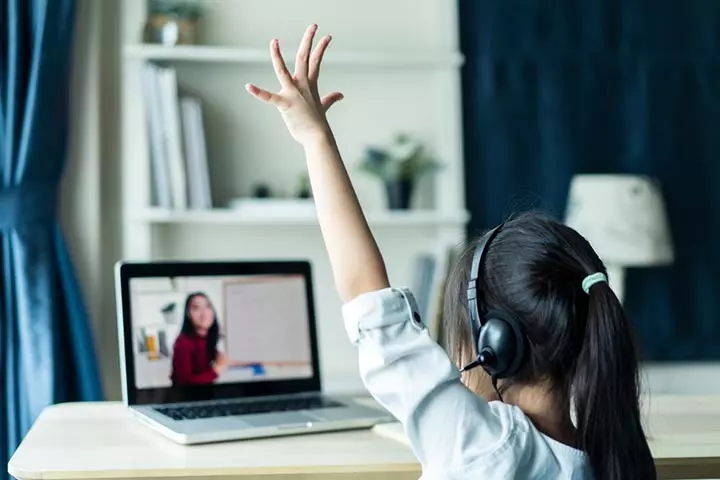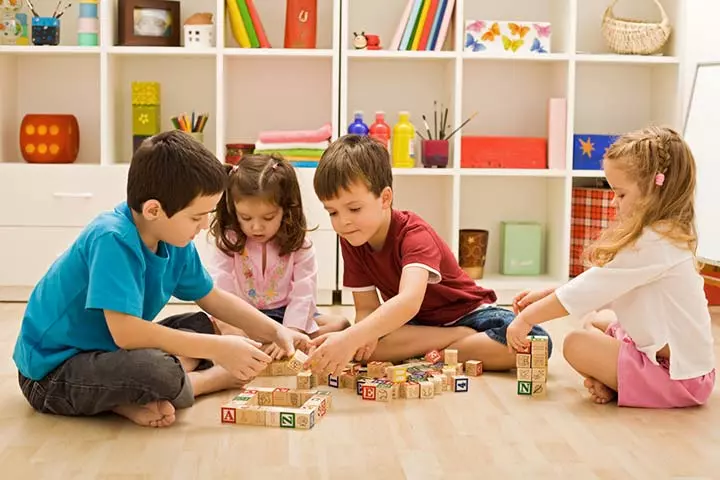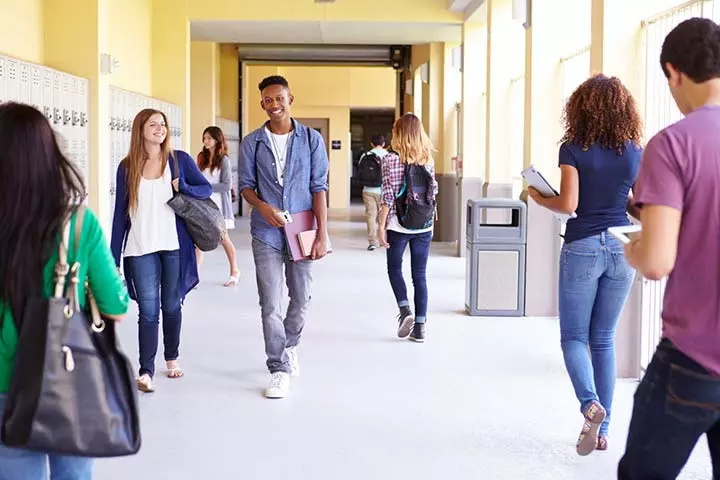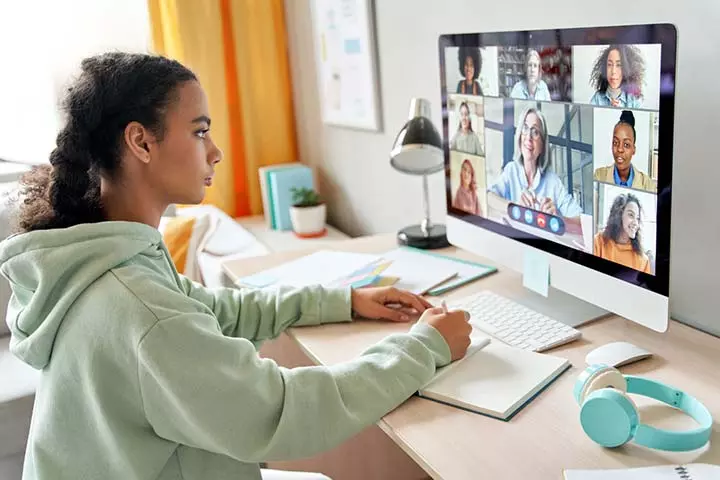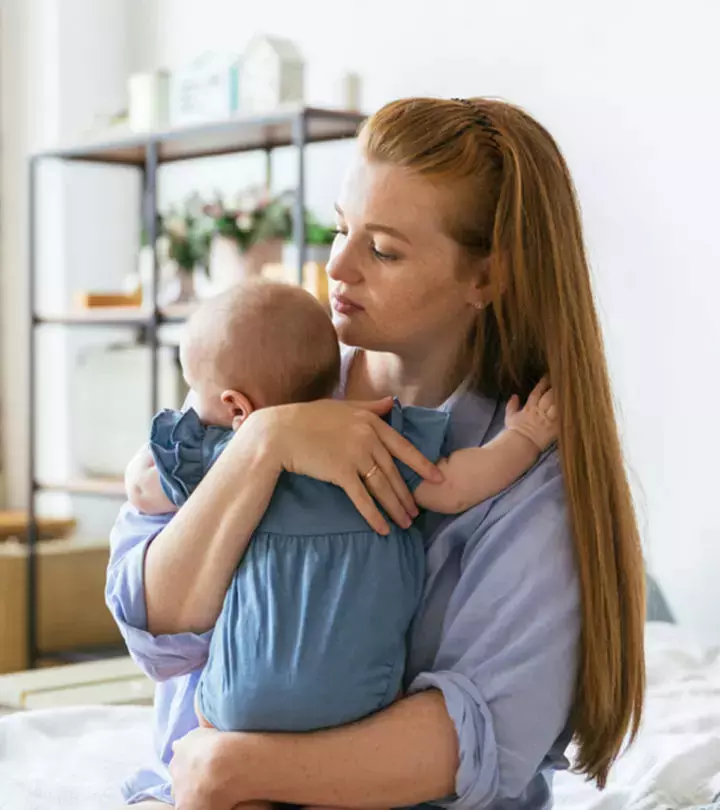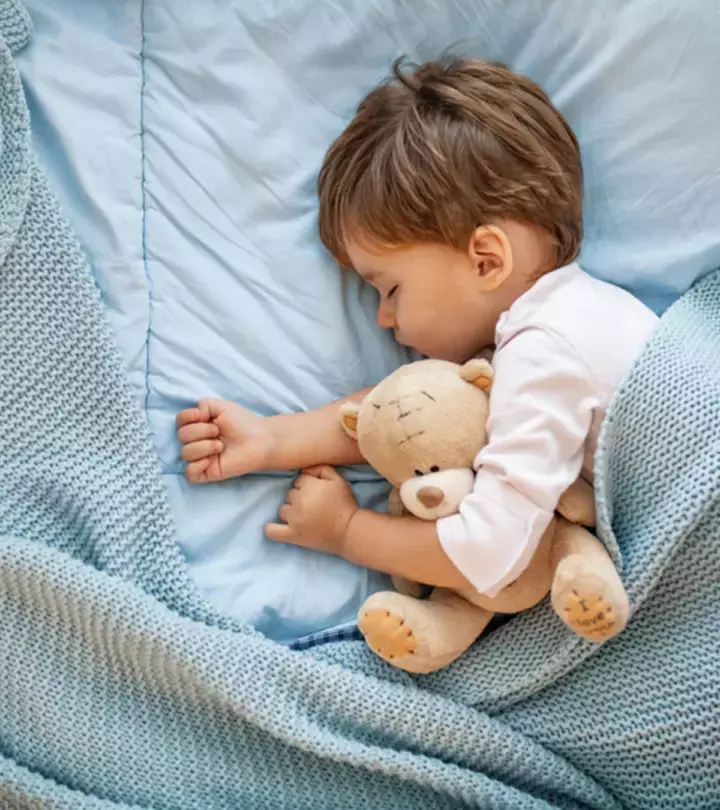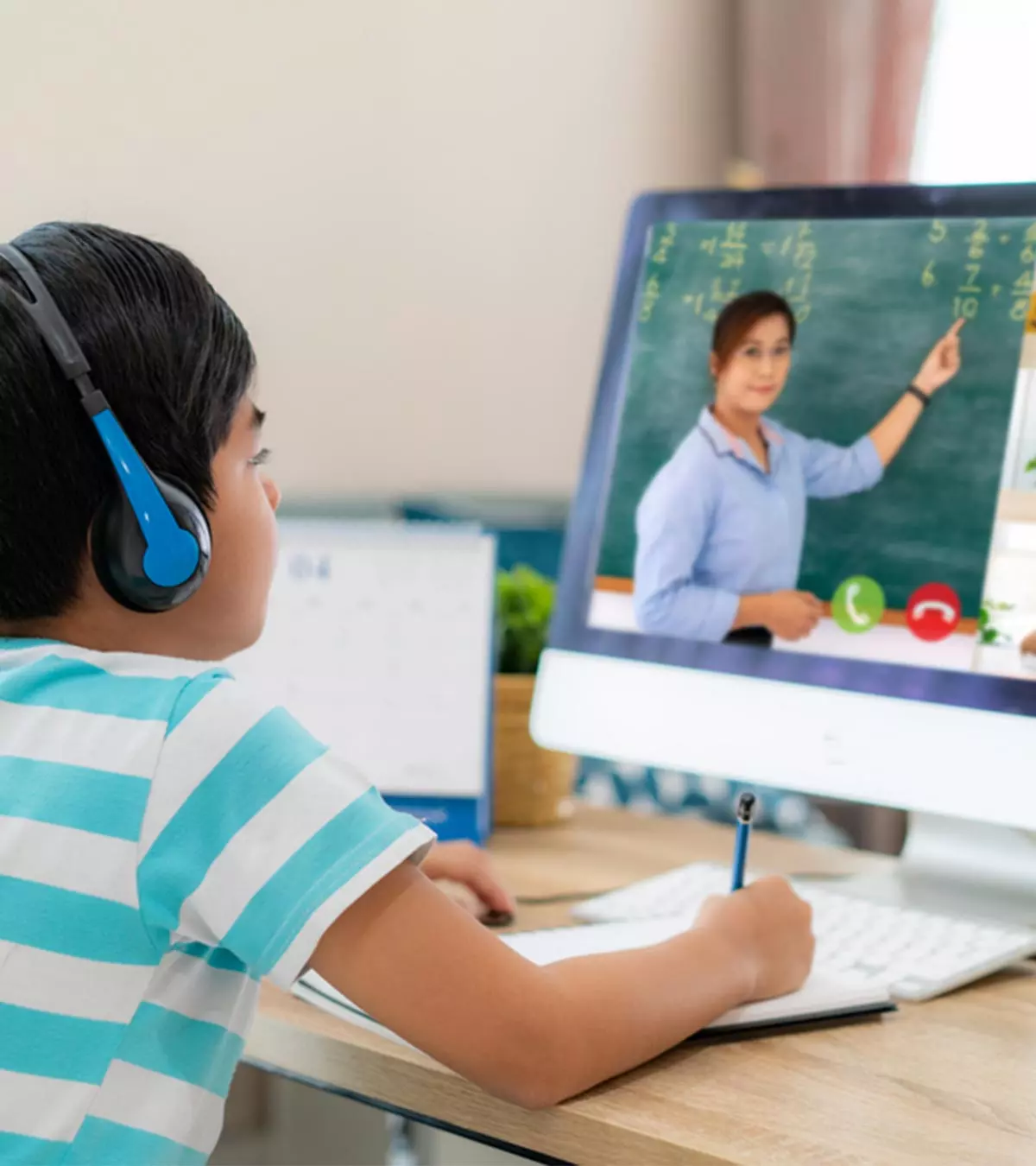

Image: Shutterstock

Back in the day (honestly, it does feel that long ago), mornings were the busiest time for any family. The scramble to slip into uniform, hurriedly down a generous breakfast, and then rush to the bus stand to catch the school bus as parents fussed over their kids was a real scene — playing itself out every day like a tired daily soap.
Fast forward to 2025 — a year after the COVID-19 pandemic forced us into a lockdown and a stay-at-home routine, the above morning scene feels more and more like a distant memory. Especially for kids whose daily routines now comprise of virtual classes, online exams, and video games.
Is this new normal a boon or bane for students? Well, it’s both in a way, depending on how you see the glass — half full or half empty.
Many parents argue that study-from-home (SFH) has been enlightening. In the current scenario, parents get to observe their kids’ performance in class (without intruding), and are better able to gauge their academic interests, likes and dislikes.
Image: Shutterstock
Talk to a parent, and you’ll find them saying that with SFH being the norm, they can now see how their children answer questions asked and how they interact with their teachers. More so because even parents continue to work-from-home, with the house now turning into part school and part office. Quite a novel experience if you ask us.
What about the kids, though? It’s been a mixed bag for them. While some kids have wholeheartedly embraced their new’ home schools’, some others have had a tough time.
Several kids are quite happy with their SFH routine. This new format of learning is arguably quite relaxed as compared to full-fledged schooling. With the flexibility to choose their study spot and spend time in the middle of classes as they please, many kids feel less pressured. Plus, they can all freely talk and no longer be referred to as a collective ‘fish market’ by their teachers since keeping their mics on mute is necessary during an online class!
Image: Shutterstock
Besides, kids get the chance to spend the breaks in between classes doing what they like – whether it’s playing with their toys, peacefully enjoying a hearty meal, or just spending time with their siblings. Something they never had the freedom to do when they attended school regularly.
That said, there’s no doubt that this sudden and unprecedented shift in the style of imparting education has made children’s lives rather topsy-turvy. So this marked change begs the question — how are kids coping physically, emotionally, and psychologically?
To answer that question, we need to understand that the shift to virtual classes has not been smooth for every school. Some schools have excelled in shifting their classroom activities online, adapting to the times, and creating effective study plans and schedules that work. For some others, this has been a relatively slow process. However, all the participating entities — parents, teachers, and most importantly, students — continue to adjust to the new scenario.
Image: Shutterstock
In the midst of this adjustment, students are missing out on shared experiences that were a normal part of regular school life. Take, for example, the whole in-school routine — from hanging out with friends in the corridors to interacting with teachers face-to-face and playing in school grounds — these activities are all but absent from a student’s life presently. Many students miss this aspect of school, which fulfills their desire for community bonding and socialization.
Since kids don’t get to meet their friends as regularly as they used to, the pressure builds up on parents to fill the gap created in their children’s lives. Kids can often become cranky and miserable when deprived of such basics. With the lack of outlets to express such emotions, they can often feel frustrated. After all, it’s friends who help one through tough times; and it’s friends they can’t meet.
However, it’s not all bad. There are some positives too. Non-existent commute times and shorter class hours give students a chance to pursue other interests. They also help strengthen the parent-child bond since both of them get the opportunity to spend quality time with each other.
Image: Shutterstock
That said, it’s almost impossible for SFH to replace school entirely. Attending school is better for the more holistic development of children. It allows them to interact, build bonds, go beyond their barriers — physically and mentally; and learn and grow together. Things that homeschooling doesn’t allow the scope for.
The result? Children often feel stressed and anxious because of SFH. With the constant exposure to news due to the TV being on at home, most students can feel stressed out due to the influx of bad news. Besides, quite a few might find it hard to adjust to attending their favorite classes online.
Ambitious students who like to study may find online classes insufficient to learn and grow. Add to that the increased pressure from parents that can sometimes lead them to being cut off from their fellow friends, making situations worse. In such times, it’s important for parents to understand their children and help them as much as they can.
The world and consequently the education system seems to be undergoing a massive change. And it’s children who are losing out on essential experiences that were far too easy to gain only a year ago. Hence, supporting children and helping them navigate through the change is vital.
Community Experiences
Join the conversation and become a part of our nurturing community! Share your stories, experiences, and insights to connect with fellow parents.

